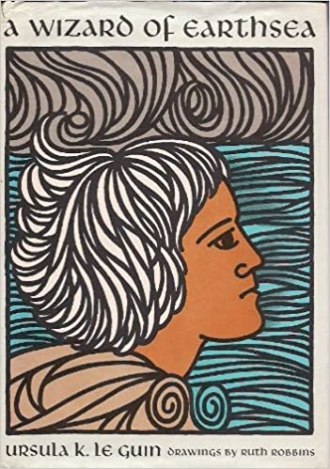It wasn’t the fireworks. It wasn’t watching Donald Trump board a helicopter for the last time, leaving the White House grounds. It wasn’t even knowing that the U.S. had rejoined the Paris climate agreement and that Joe Biden had revoked the permit for the Keystone XL pipeline on his first day in office (both vital steps, of course).
Instead, what gave me hope, what provided me with excitement on Inauguration Day … was an iconic pair of mittens (just kidding). What brought me close to tears was the evident humanity of Biden and Kamala Harris — something I admittedly would have pooh-poohed (my kids love that word) in the past. And, more, the depth and sheer wonkery of the policies they released on Wednesday. E.g., “Executive Order on Protecting Public Health and the Environment and Restoring Science to Tackle the Climate Crisis.” E.g.,“Executive Order On Advancing Racial Equity and Support for Underserved Communities Through the Federal Government.” E.g., “Modernizing Regulatory Review.”
Not light reading. But taken as a whole, these rules and others like them show that the new administration will be tackling climate change and equity (and a host of other issues) with a seriousness of purpose, and, equally important, as two sides of the same coin. Which isn’t something we’ve seen before in America. Deeds must follow words, but the start has been more promising than I could have hoped for. It’s enough to let one again imagine a better future.
Speaking of which … we’ve inaugurated something of our own here at Fix this month. Our brand-new climate-fiction contest, called Imagine 2200, seeks to flip the script on the usual sci-fi dystopian stories through a call for fiction that brings into focus what a just, regenerative, non-sucky future could look like.
Check it out, and please spread the word. We welcome your submissions, as well as feedback or input on anything else relating to this ol’ newsletter.
–Chip Giller, Grist Founder and Creative Officer
Your new heroes
Just before the inauguration, Fix reached out to four Fixers for their insights into the climate cred of Biden’s cabinet picks and how his administration is shaping up. Here are some highlights from what they shared:

Oday Salim, conservation justice activist and attorney at National Wildlife Federation Great Lakes Regional Center
“Once Biden becomes president, he will have already done more for the climate, institutionally speaking, than any other president by adding domestic and international envoys for climate in Gina McCarthy and John Kerry. And picks like Deb Haaland [Interior] and Michael Regan [EPA] tell us he is serious about bringing on people who place justice at the heart of their work. But those leaders must live up to their records — and improve upon them.”

Ashley Hand, cofounder of Cityfi
“I’m excited to see mayors appointed to key positions, whether it’s Marty Walsh from Boston to the Department of Labor or Pete Buttigieg to the Department of Transportation. When you bring a localized problem-solving approach to the federal level, it creates a huge opportunity to strategize across sectors.”

Daniel Blackman, policy advisor and impact investor
“[A]s great as it is to have those experienced leaders, we also need a commission consisting of individuals under 35 to make sure young people are calling the shots. I think this presidential election has shown the power of an educated, active, young electorate that’s saying, ‘Look, if you’re not talking about equality, the climate crisis, or criminal justice reform, then we’re not voting for you.’”

Gabe Vasquez, conservation advocate and city councilor for Las Cruces, New Mexico
“Haaland will administer the various bureaus and departments that help govern Indian Country, giving her an opportunity to right many historic wrongs and ensure this country honors its treaties with Native people. I’m expecting Haaland to be one of the most influential and powerful interior secretaries that we’ve ever had.”
Read the full piece here.
Your reading list

Speaking of climate fiction, I’ve been reading Ursula Le Guin’s Earthsea books to my son. So much to love, beyond the writing (much of it wondrously about the sea) — the search for self-understanding, the importance of balance (with a capital B), the connections shared among all creatures and even inanimate objects, the subversive take on race, the significance and weight of words. Rereading the collection, I’ve been reminded of Le Guin’s storytelling prowess; when I was a kid myself, I hadn’t been as aware of how profound the books are, too. Have at them!
Your pick-me-up
- Bring the HEET. Two moms in Massachusetts, who head the grassroots organization HEET, have an innovative plan to end our reliance on natural gas. They want utilities to swap out leaky gas pipes with ground-source heat pumps, creating networks called GeoMicroDistricts that could increase efficiency, reduce costs, and slash methane emissions as they grow. They even got the biggest gas company in the state on board to test the concept.
- Roots of resistance. Through the Solitary Gardens project, people in solitary confinement design flower beds or vegetable patches that volunteers on the outside plant and tend. Each plot matches the dimensions of the cell to which the designer is confined, in the hopes of inspiring visitors to challenge mass incarceration (which, btw, in addition to its human rights violations, emits massive amounts of carbon).
- Electric feels. General Motors is rolling out a new electric delivery service later this year, including a van with a range of 250 miles per charge. FedEx is its first customer. Meanwhile, Honda is now planning to electrify all of its European models by 2022, ahead of what had been its 2025 goal. Vroom!
- Offshore enough. In his latest essay, David Wallace Wells (our modern-day climate Cassandra) summarizes exactly how screwed we are — but, uncharacteristically, also highlights positive trends and opportunities. “Climate change isn’t an issue just for die-hards anymore,” he writes. “It’s for normies, sellouts, and anyone with their finger in the wind.” Case in point: General Electric is testing a MASSIVE offshore wind turbine that is already bringing in billions in sales — and causing competitors to play catch up.
- Talking the tok. EcoTok, a collective of TikTok influencers, uses the app’s dances, memes, and viral audio tracks to create climate-themed videos that it hopes will motivate Gen Z to stop doomscrolling and take action. From love letters to seaweed to some healthy mocking of oil companies, the videos will have you rolling on the floor (and probably picking up some litter on your next walk).
Your weekend plan
TALK TO THE FUTURE
First off, pretty please share the news about Imagine 2200 with any writers, students, friends, acquaintances, listservs, TikTok followers … y’know, everyone you think might be interested in the opportunity. We’ve even got a handy media kit with some images and suggested copy you can use.
And of course, consider submitting an entry yourself. Here’s a way to get your creative, world-building juices flowing, borrowed from our chums at DearTomorrow, an organization founded by Fixers Jill Kubit and Trisha Shrum: Sit down for 10 minutes and write a letter to the future. It can be to your future self, your children, an adoring public. Imagine that the recipient will open it in the year 2050. What do you want to tell them about what the world looks like now, what you think/hope/fear it will look like then, and what you’re doing about it? Are there any promises you want to make, or moments you want to preserve?
If you’re feeling time-capsule-y about it, you can even stash your note somewhere safe and set yourself a calendar reminder to open it, or deliver it, 29 years from now. And please share what you write with the folks at DearTomorrow, too.
This post was originally published on Radio Free.

